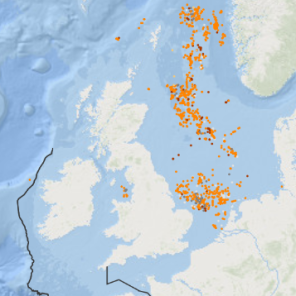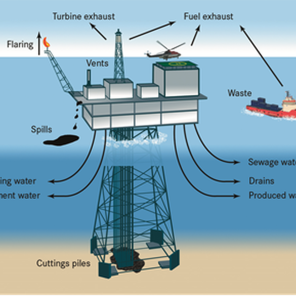| | OSPAR’s Offshore Industry Committee (OIC) met in Scheveningen (The Netherlands) from 11 - 15 March 2024
Germany’s Robert Dörband, chaired the busy meeting which looked at both past successes, with the publication of the offshore industry components of OSPAR’s Quality Status Report 2023, and looked ahead to OSPAR’s next Ministerial meeting to be held in 2025.
On decommissioning, the meeting heard updates on technological and scientific advances to remove disused offshore installations; and discussed the need to agree a plan to promote and advance these. The meeting also discussed the review of the derogation categories in relation to OSPAR Decision 98/3 on the disposal of disused offshore installations which prohibits the dumping, and leaving wholly or partly in place, of disused offshore installations within the OSPAR maritime area. Good progress was on the German-led task to develop guidance to support the application of the Harmonised Comparative Assessment Methodology under OSPAR Decision 98/3.
The meeting also discussed progress in fulfilling the objectives of OSPAR’s North-East Atlantic Environment Strategy (NEAES) 2030 with specific focus on the extent and impacts of produced water sheens; discharges, spills and emissions; country assessment reports for the 2018-2022 period from Denmark and Germany; and an assessment on the sources of plastic materials placed in the marine environment for protecting offshore oil and gas infrastructure. Attention was also given to carbon dioxide storage, specifically the monitoring techniques of carbon dioxide stored in geological formations. |  | | Offshore Industry Thematic Assessment | The environmental pressures from offshore industry during exploration, production and decommissioning include the discharge of produced water, oil, chemicals, drilling muds and cuttings, the physical impact from the placement of installations and pipelines, noise from seismic surveys and drilling, light emitted from the installations, and atmospheric emissions. OSPAR has put in place a significant number of measures aimed at reducing the discharges from offshore industry within the OSPAR area and thus reducing their impacts on the marine environment. |  READ MORE
READ MORE |
| |  | | Impacts of the offshore oil and gas industry on the marine environment | Environmental impacts can occur throughout the lifecycle of these activities, exploration, production and decommissioning. Impact can arise from discharge of produced water, oil, chemicals, drilling muds and cuttings, physical impact from the placement of installations and pipelines, noise from seismic surveys and drilling, light emitted from the installations and atmospheric emissions. |  READ MORE
READ MORE |
|
| |
| | |
|